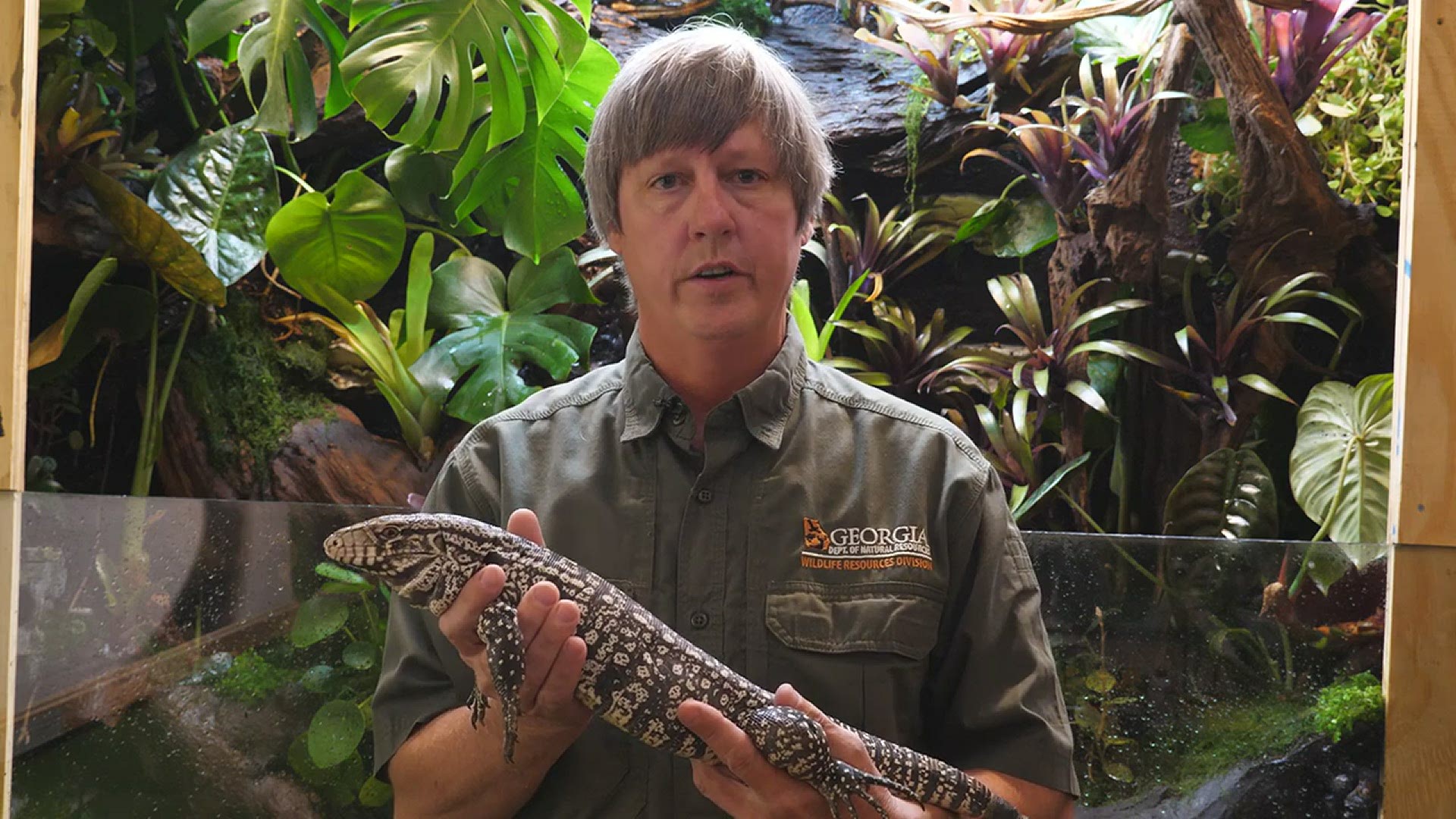ATLANTA — As spring-like weather becomes the norm in Georgia, an invasive species may become more common -- and wildlife officials want to know where they're popping up.
Georgia Department of Natural Resources is reminding people to report sightings of tegus, alive or dead. DNR is trying to make sure the South American lizard doesn't expand its population in the state.
The Argentine Black and White Tegu lizard is described as a voracious predator and was first spotted in 2018 in Tattnall and Toombs counties. The largest of all tegu species, the reptile can grow up to 4 feet long and weigh more than 10 pounds. DNR said the lizards pose a threat to Georgia's native wildlife, including gopher tortoises, wild turkeys and ground-nesting birds.
Since tegus are not native to Georgia, wildlife officials said if the lizard is spotted in the wild, it can be trapped or killed on private property with landowner permission. Georgia wildlife laws or regulations do not protect them, DNR said in a news release.
If the lizard is trapped or killed, the DNR asks that it is still reported so researchers can gauge the species' spread. The DNR adds for key sites; the agency can provide loaner traps, advice and even help with monitoring.
“We are focusing our efforts to accomplish two goals: document the extent of where tegus occur in the wilds of southeast Georgia and remove those animals as soon as we can after they are detected,” Daniel Sollenberger, DNR senior wildlife biologist, explained. “With area residents, hunters and other folks helping us keep an eye out for and controlling tegus, we are cautiously optimistic we can control this population.”
DNR leaders advise people, especially in Toombs and Tattnall counties, to keep pet food inside, fill holes that could serve as shelter for the lizard and clear yards of debris that can provide cover.
To report sightings, take a photo or video and report it to gainvasives.org/tegus or call (478) 994-1438. People can also report sightings at gainvasives@dnr.ga.gov.
To learn more about tegus lizards, head to georgiawildlife.com/tegus.

